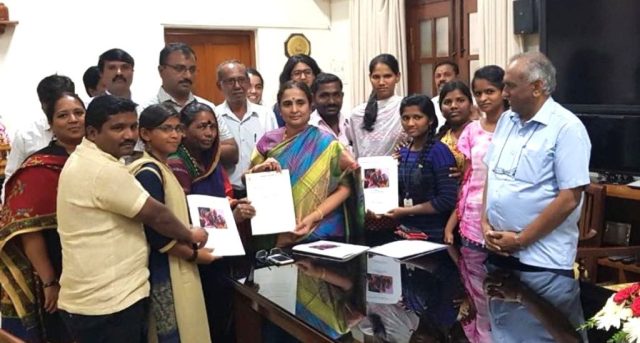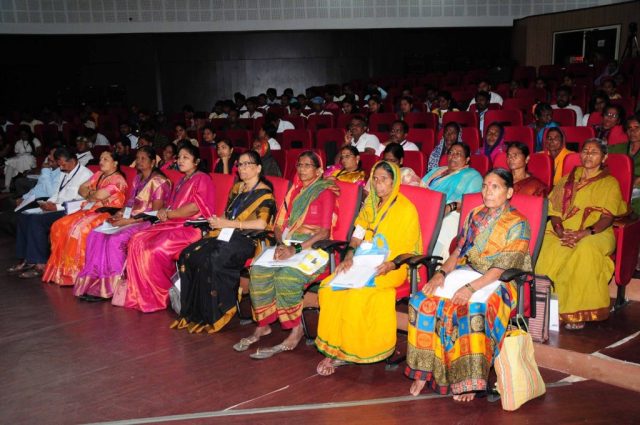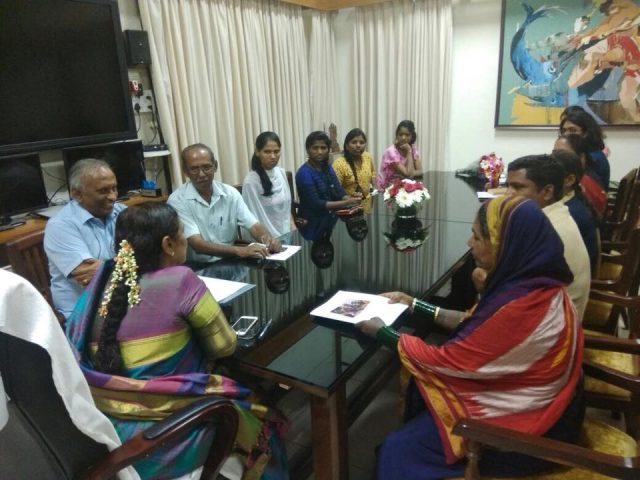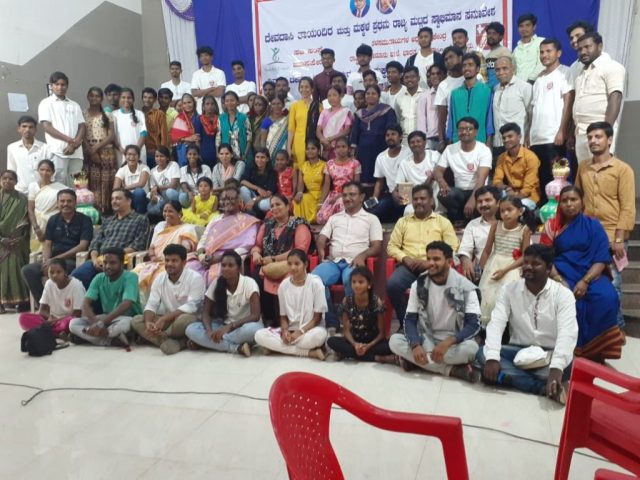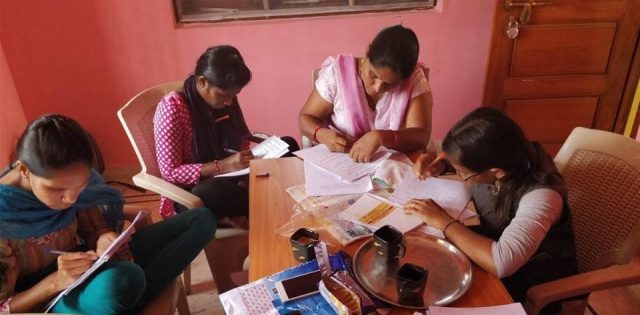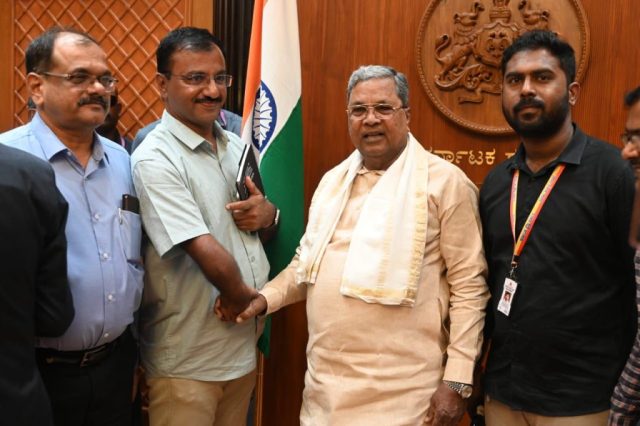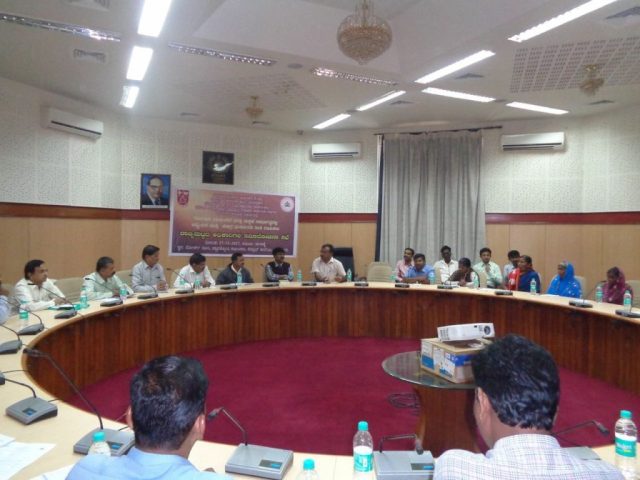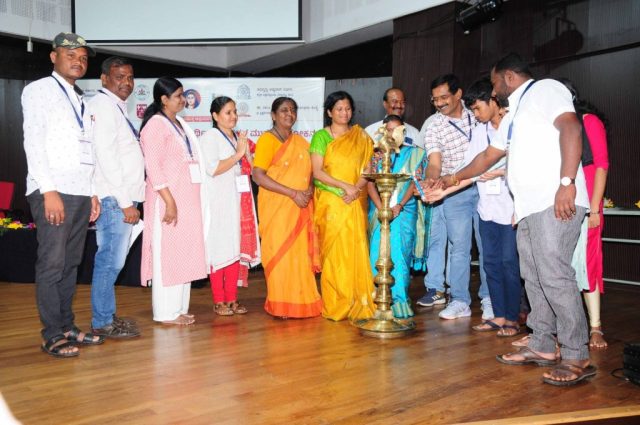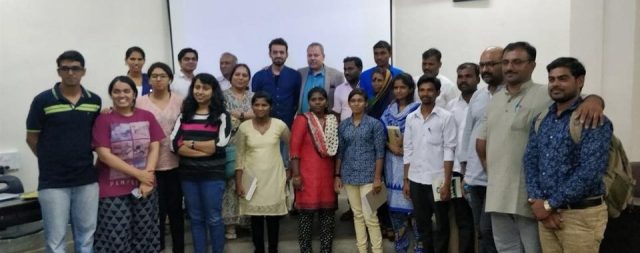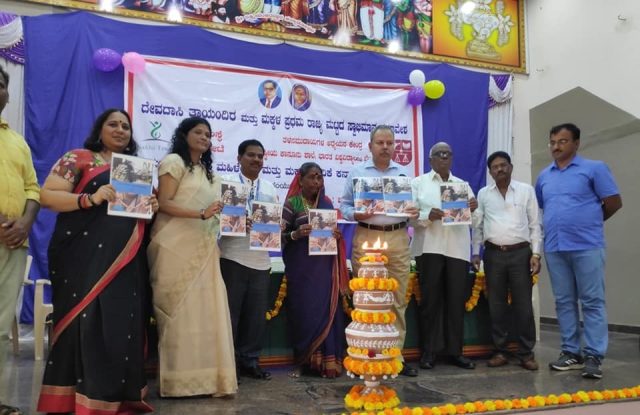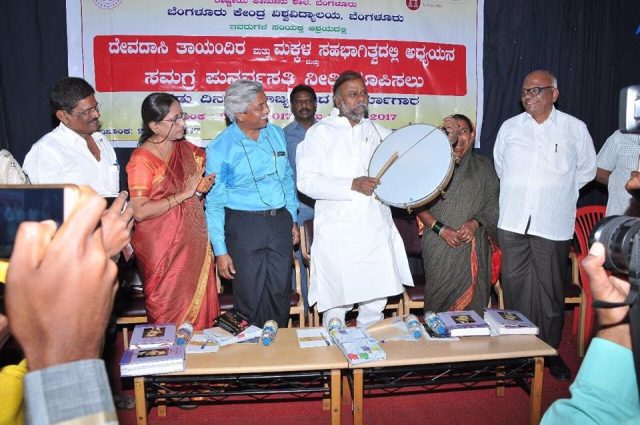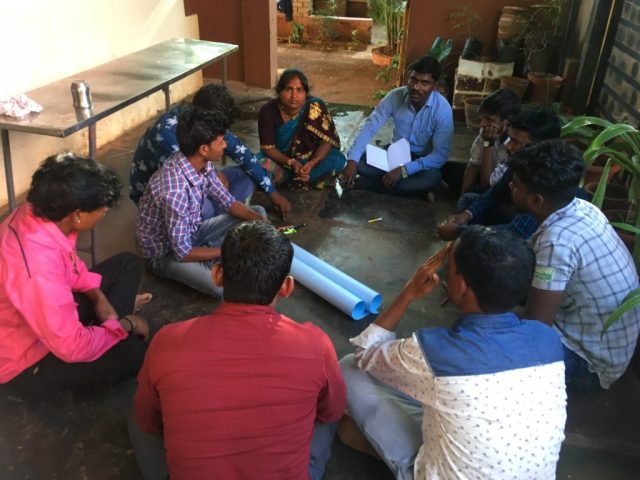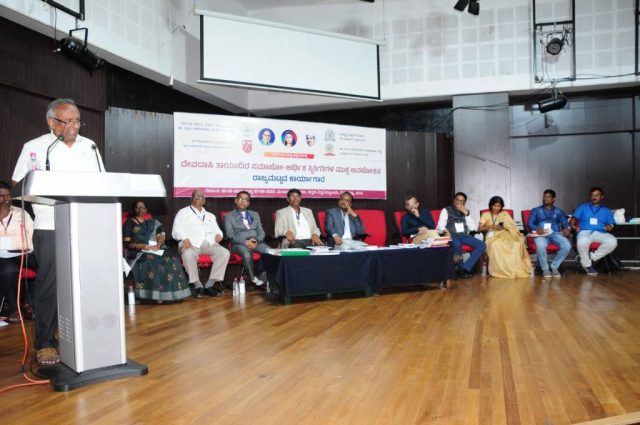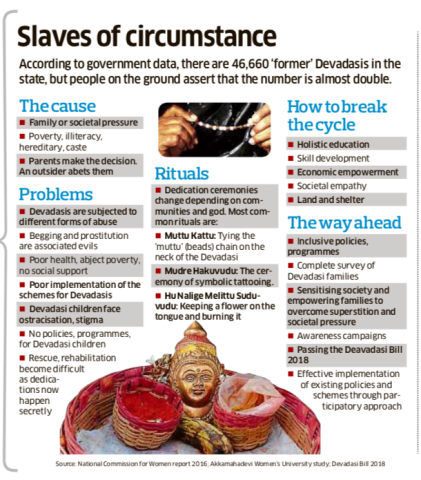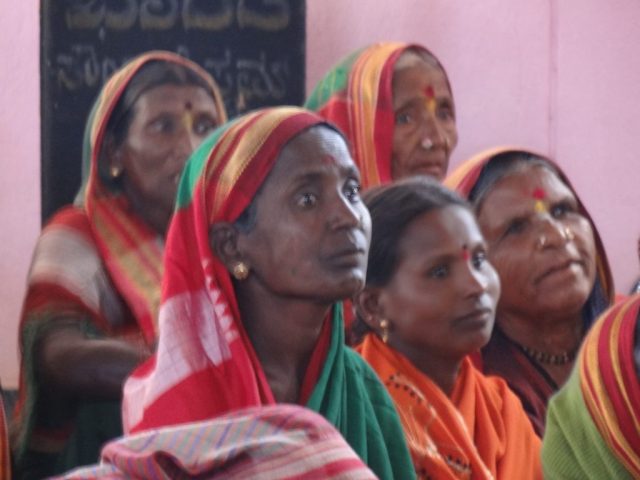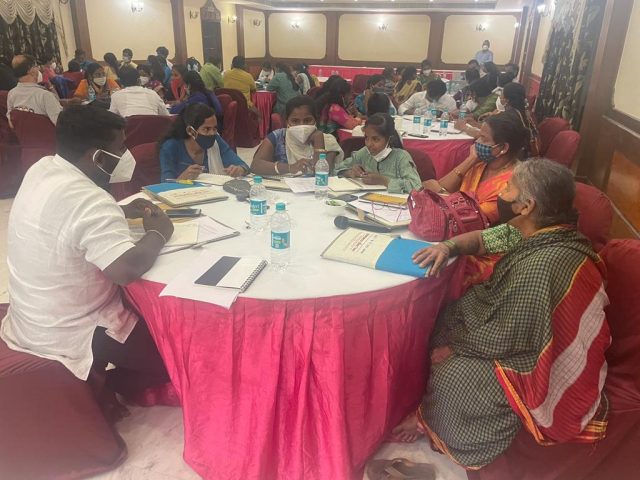The Karnataka Devadasi Bill, 2025: A Landmark Framework | By Centre for the Study of Social Inclusion, NLSIU
August 8, 2025
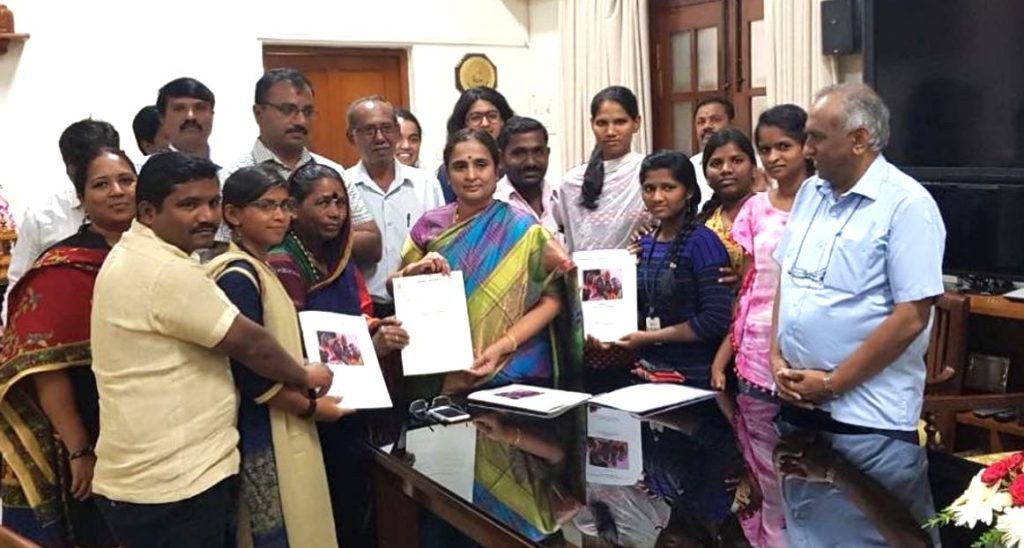 The Karnataka State Cabinet has approved the transformative and comprehensive model legislation for the Karnataka Devadasi (Prevention, Prohibition, Redress and Rehabilitation) Act, 2025 submitted by the Centre for the Study of Social Inclusion at the National Law School of India University (NLSIU), Bengaluru. Karnataka State Minister of Law and Parliamentary Affairs, Legislation and Tourism Department, Shri H.K.Patil, has said that the Bill will be introduced in the Legislative Assembly.
The Karnataka State Cabinet has approved the transformative and comprehensive model legislation for the Karnataka Devadasi (Prevention, Prohibition, Redress and Rehabilitation) Act, 2025 submitted by the Centre for the Study of Social Inclusion at the National Law School of India University (NLSIU), Bengaluru. Karnataka State Minister of Law and Parliamentary Affairs, Legislation and Tourism Department, Shri H.K.Patil, has said that the Bill will be introduced in the Legislative Assembly.
The draft proposal, which repeals the Karnataka Devadasi (Prohibition of Surrender) Act, 1982 and the Karnataka Devadasi (Prohibition of Surrender) (Amendment) Act, 2009, had been submitted to Department of Women and Child Development, Government of Karnataka for consideration by the Cabinet agenda.
The proposed law represents a holistic and rights-based strategy to dismantle the Devadasi system — an oppressive and illegal social practice still prevalent in parts of Karnataka despite historical bans.
About the Bill
The draft law reflects seven months of field research, consultation, discussion and dialogue initiated by the Talasamudaayagala Adhyayana Kendra at NLSIU in collaboration with Devadasi Community members, Government of Karnataka, NGOs, State universities and activists working for the empowerment and emancipation of the Devadasi community for erasing the Devadasi practice in its intent and practice. Students from the Master’s Programme in Public Policy (MPP) at NLSIU provided research support for the initiative.
More than 15,000 Devadasi women and community members participated during the district and taluk devadasi research consultations in the districts of Koppala, Raichur, Bellary, Bagalakote, Yadgiri, Gulbarga, Belgaum, Vijayapura, Dharwad, Haveri, Gadaga, Davanagere, Chitradurga, Shimoga, and Vijayanagara.
This legislation aspires to go beyond relief – to recognition, justice, accountability, and institutional transformation – laying the final foundation for the eradication of the Devadasi system in Karnataka.
Read the DraftReflections
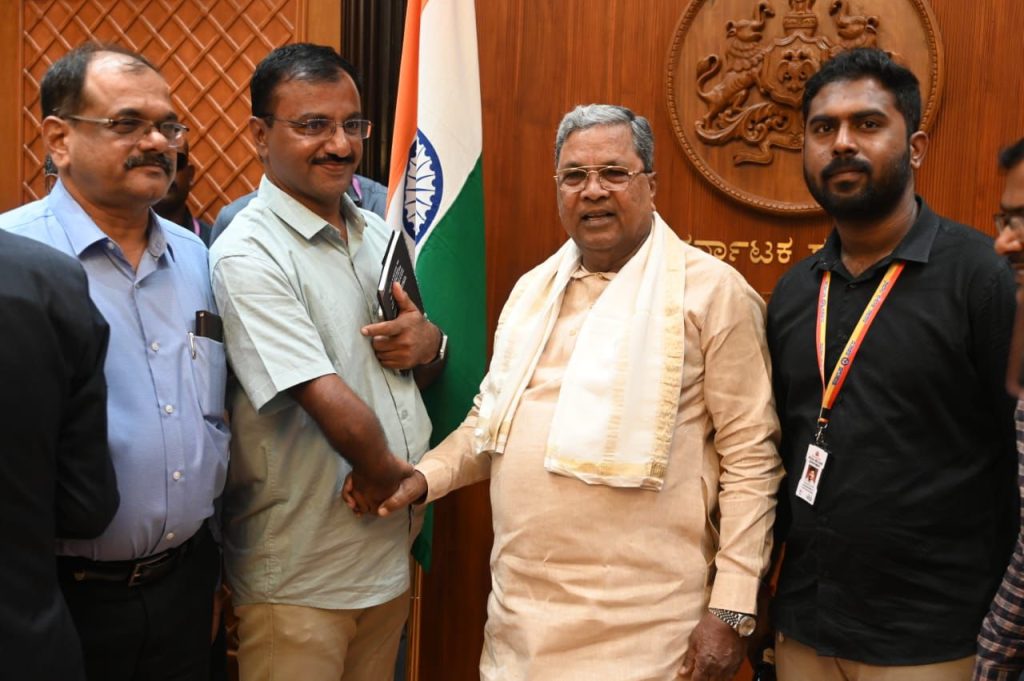 Dr. Chandrashekar R. V., Coordinator, Drafting Committee, and Centre for the Study of Social Inclusion, NLSIU, said:
Dr. Chandrashekar R. V., Coordinator, Drafting Committee, and Centre for the Study of Social Inclusion, NLSIU, said:
“Heartfelt congratulations to the Devadasi mothers and children who have tirelessly led this movement. Many organisations and subject matter experts have supported and guided us throughout this journey. Based on the collective input of all stakeholders, the 2025 Bill is now a step closer to reality.
This is a historic moment for Karnataka – a law truly made by the people. Unlike the traditional approach where laws are created and imposed by governments, experts, and researchers, this Bill was envisioned, shaped, and demanded by the people themselves. For the past eight years, Devadasi mothers, children-led groups, and allied organisations have worked relentlessly to make this happen.
Congratulations to everyone – those who have directly or indirectly contributed to this transformative process. Special thanks to the Chief Secretary Dr. Shamla Iqbal Department of Women and Child Welfare and all the officials who have worked continuously to bring this Bill to the Cabinet. We also extend our gratitude to those who supported and reported on this journey.
Thanks to the collective cooperation, encouragement, and support of so many, this law now stands on the threshold of implementation.
A sincere thanks to the Honourable Chief Minister of Karnataka Shri Siddaramaiah and the Chief Secretaries for supporting this people’s Bill to be brought forward for Cabinet discussion.”
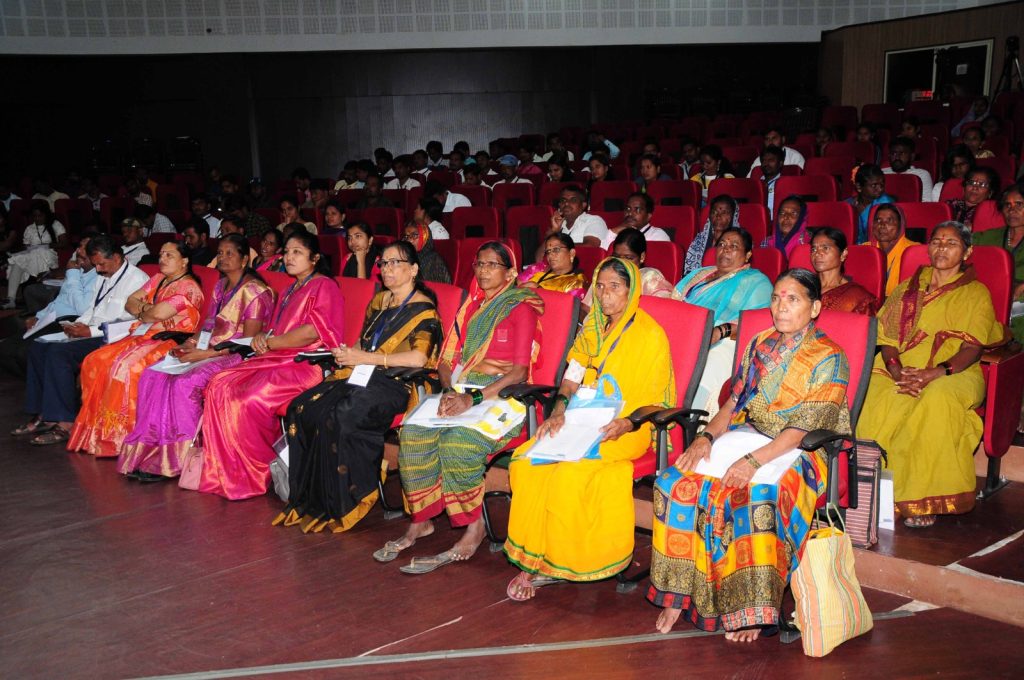 Key Highlights of the Bill
Key Highlights of the Bill
1. Anchored in Constitutional and Social Justice Values
- The Bill upholds the core constitutional principles of equality before law (Article 14), prohibition of discrimination (Article 15), and protection of human dignity (Article 21). It is aligned with Karnataka Government’s AHINDA vision, reaffirming the State’s duty to dismantle caste- and gender-based oppression through inclusive and rights-based governance.
2. Community-Led, Inclusive Legislative Process
- Developed through an unprecedented participatory process led by Talasamudaayagala Adhyayana Kendra of National Law School of India University (NLSIU) Bengaluru, the Bill integrates insights from over 15,000 Devadasi women, their children, and community leaders across 16 districts.
3. Prohibition and Criminalisation of the Devadasi System
- Establishes strong legal safeguards to eliminate the Devadasi system in all its manifestations. Reinforces punitive measures while promoting preventive strategies through education and awareness.
4. Comprehensive Relief and Rehabilitation
- Guarantees time-bound access to essential entitlements—healthcare, housing, education, pensions, and livelihood opportunities. Introduces Charters of Relief and institutional mechanisms at taluk, district, and state levels for effective implementation.
5. Protection of Children’s Rights
- Ensures children born to Devadasi women can claim paternal identity, inheritance, and maintenance. Institutionalises safeguards against stigma and exclusion in public institutions.
6. Empowerment through Community Governance
- Promotes democratic inclusion by institutionalising the participation of Devadasi women and youth in decision-making bodies and monitoring committees. Enables community ownership of implementation and accountability.
7. Accessible and Rights-Based Legal Design
- The Bill is structured in community-friendly language and design, modelled on RTI principles, ensuring usability and awareness at the grassroots level. Recognizes Devadasi families as rights-holders, not passive recipients.
Evolution of Legal Framework
There has been an evolution in legal thinking from punitive to rights-based and participatory frameworks. The 2025 Bill has transformative potential in addressing structural, intergenerational injustices experienced by Devadasi women and their families. For a comparative analysis of the Karnataka Devadasi (Prevention, Prohibition, Relief, and Rehabilitation) Bill, 2025 vis-à-vis the earlier legislations—The Karnataka Devadasis (Prohibition of Dedication) Act, 1982 and its 2009 Amendment (Act 1 of 2010), read more.
For more details, please contact
Dr. Chandrashekar R. V., Coordinator, Drafting Committee
Centre for the Study of Social Inclusion, NLSIU
Email:
In the Press
- YourStory | August 20, 2025| Karnataka’s new Devadasi law is a step from stigma to empowerment
- The Hindu | August 7, 2025 | Cabinet clears Karnataka Devadasi Bill for rehabilitation, 17 other legislations
- ETV Bharath August 7, 2025 | Karnataka Cabinet Approves Legislation Granting Devadasi Children Right to Identify Fathers, Claim Property
- Prajavani | August 3, 2025 | Devadasi System Ban: ಮುಂಬರುವ ವಿಧಾನ ಮಂಡಲ ಅಧಿವೇಶನದಲ್ಲಿ ಮಸೂದೆಯನ್ನು ಮಂಡಿಸಲು ಚಿಂತನೆ ನಡೆದಿದೆ ಎಂದು ಮಹಿಳಾ ಮತ್ತು ಮಕ್ಕಳ ಅಭಿವೃದ್ಧಿ ಇಲಾಖೆಯ ಮೂಲಗಳು ತಿಳಿಸಿವೆ
- The Hindu | June 28, 2025 | Activists demand Devadasi survey without condition of age limit
- The Hindu | June 23, 2025 | Paternity test, right to property: What is Karnataka’s new legislation to end the Devadasi system?
- Deccan Herald | March 2, 2025 | Kid’s right to identify dad, right to property added to Devadasi Bill
- Frontline | January 30, 2025 | Lives on the margin
- Deccan Herald | November 25, 2018 | For ‘Servants of God’, no end to their misery
- Deccan Herald | November 25, 2018 |Concerted efforts imp to bring them into mainstream
- Deccan Herald | November 25, 2018 | ‘I can’t afford to dream of my future’


